Caja Rural-Seguros RGA 'sticking to plan' for next season despite runaway 2015 success
No switch of goals for Spain’s only Pro Conti team in 2016
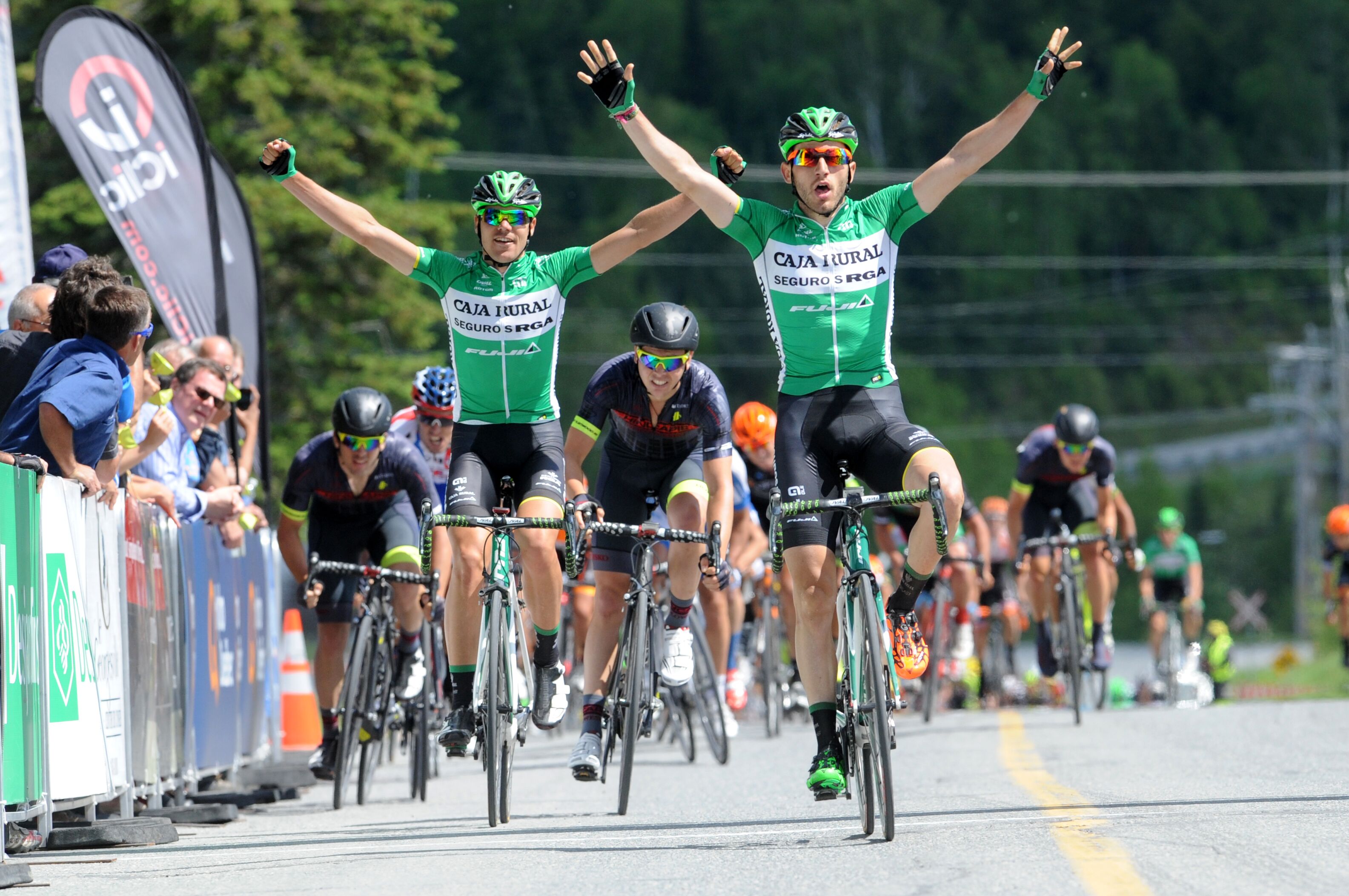
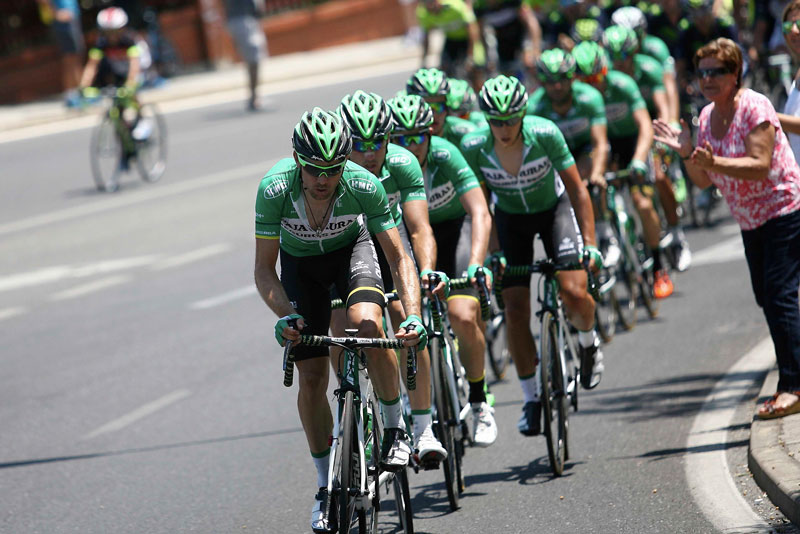
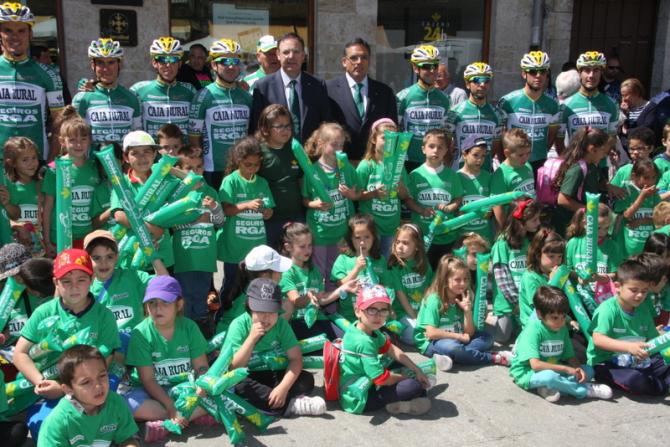
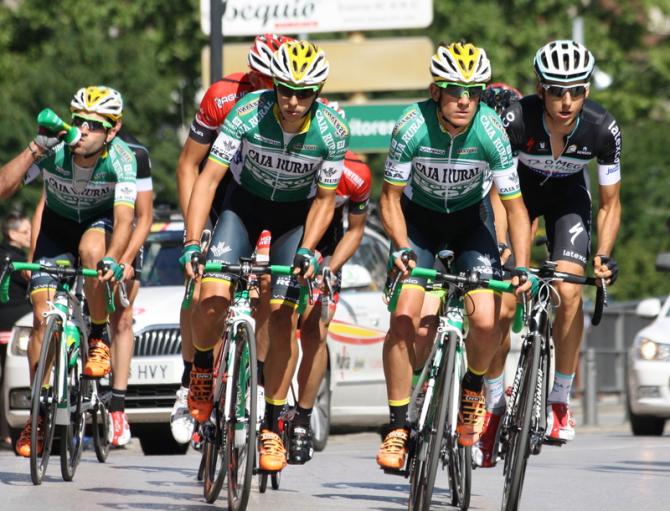
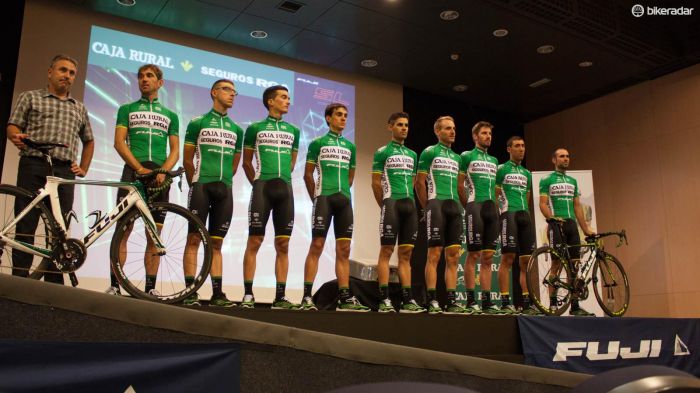
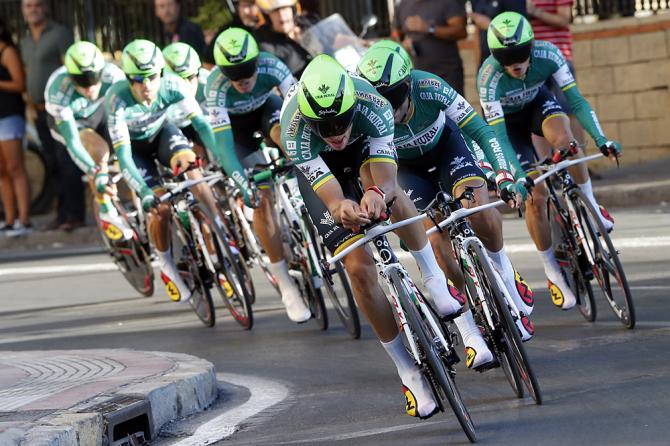
As October kicks in and the road season slowly but surely winds down, the temptation to scour the internet for highpoints of the year’s racing steadily gets greater. And if you’re amongst those trying to find standout performances that may well have been overlooked the first time round, you could do worse than track down a Youtube video of the closing kilometres of stage 8 of the Tour of Turkey.
That was when Caja Rural-Seguros RGA rider Lluis Mas burst clear, and on the twisting narrow streets that follow, just managed to fend off the bunch - led in by no less a star than Mark Cavendish and the Etixx-QuickStep team. It’s a classic last-minute hot pursuit, with the one rider who has the strength and opportunity to get away just managing to stay out of the peloton’s clutches.
Winning that kind of David-versus-Goliath scenario has become familiar terrain for Caja Rural-Seguros RGA in 2015. In 2014, the Pro Continental team took just five wins, and this season so far they are on 17 and counting, the most recent in Thursday’s Coppa Sabatini and ranging from wins in the Vuelta a Burgos to victories in the Four Days of Dunkirk, the Philadelphia Classic and the overall of the Tour de Beauce. The squad’s increasing consistency stretches further down the classification too; by August, the team had already taken more than 100 top 10 placings.
“It’s partly due to a group of younger riders coming through like Carlos Barbero [winner of five races this year] and Pello Bilbao [winner of three]. They're stepping up a level, maturing with the team, and one victory has led to another,” sports director Eugenio Goikoetxea told Cyclingnews as the Caja Rural-Seguros RGA prepared for its last two races, this weekend's Giro del Emilia and the GP Beghelli in Italy.
Although the first win of the year did not come until April, a stage in the Vuelta a Castilla y León, Goikoetxea says, “If you look back at the history of the team, that tends to happen. In February and March, we’re racing against WorldTour teams that are building towards the April Classics, they’ve come from San Luis or Australia and they’re already in form. We’re starting a lot more steadily, in Andalucia, a little more slowly, and so every year the first victories have tended to come in April or May.”
However, Goikoetxea says it wouldn’t be realistic to expect that a season like 2015 is going to become a benchmark for the future. They don’t have the budget to make big signings and as a result the team is not just looking for wins, but also to keep a higher profile during the race itself and be in the thick of the action. That makes repeating a bumper year like 2015 much more difficult.
“It’s been a very good year for us. Had we got a stage win in the Vuelta a España” - the racing highpoint of the year for the team - “it would have made it absolutely exceptional. But the thing is we can’t simply sit back and say we’re happy. A small squad like ours, it’s always got to be out there trying to keep the organiser satisfied, trying to show ourselves on the front. And we haven’t got the kind of budget to be signing big name riders who would guarantee those victories. To repeat these 17 again? It’d be very hard, although we’d like to do that. You always aim for the maximum possible.”
Get The Leadout Newsletter
The latest race content, interviews, features, reviews and expert buying guides, direct to your inbox!
You could argue, though, that with the financial limitations a small team like Caja Rural-Seguros RGA have, for all they have been one of the most successful Pro Continental squads of 2015, that it can’t get much better than this.
“We’d like to get into more WorldTour races, but to take the Giro d’Italia for example, we get on the shortlist, but then there are four or five teams in the same situation in Italy, with four spots available, that we have in Spain,” Goikoetxea points out. “And in the Tour, there are top French squads and teams like MTN-Qhubeka who are better placed. The same goes for the Belgian Classics and Belgian Pro-Conti teams.”
“But we’re a Spanish team with a Spanish sponsor, and so we’re not too bothered that we’re not doing all the WorldTour races, if we’re still doing the Spanish ones - Volta a Catalunya, Vuelta a España, Clasica San Sebastian and Vuelta al País Vasco. That said if they invite us to other WorldTour races, we’d be delighted to go.” He is optimistic, in any case, that as Spain’s sole Pro Continental team and having won the King of the Mountains jersey in the Vuelta a España for two years running, they should be able to get an invite to the country’s Grand Tour in 2016.
One noticeable change this year in races across Spain has been a big increase in fans rooting for Caja Rural-Seguros RGA, with fans in their green t-shirts appearing in increasing numbers on the roadside. Goikoetxea says that first and foremost the t-shirts are linked to the team’s campaign with local NGOs to help food banks. But he agrees that the team is getting “grassroots support” too, and given Caja Rural is based in Navarre, where the cycling is strongly linked to the heartland of Spanish cycling in the Basque Country, there are arguably strong echoes of a prior mass adoption by many Basque fans of another ‘home’ squad - the defunct, hugely popular Euskaltel-Euskadi squad.
Following Euskaltel-Euskadi’s tracks into the WorldTour is out of the question for now, he says. “It’s a question of money. We’d need four or five million euros to do that. Maybe Caja Rural and Seguros RGA could provide a bit more money, but we’d need a big sponsor for that.” The team, in any case, has its future guaranteed until at least the end of 2016, and some riders are signed for 2017, too. “The team doesn’t have a sell-by date,” Goikoetxea says.
Success and a low budget inevitably provokes interest in star riders, with Omar Fraile, the winner of the Vuelta’s KoM competition and the Giro dell Apennino heading to Dimension Data and Amets Txurruka, one of the squad’s best-known faces, moving on to Orica-GreenEdge. David Arroyo, another well-known rider who finished second in the 2010 Giro d’Italia, is, however, expected to re-sign the squad.
“It’s normal, we’ve got our economic limits, and riders who shine will get offers from the ProTour, that’s to be expected.” The same thing happened with Luis León Sánchez, who raced in Caja Rural for one year before moving back into the WorldTour with Astana.
At the same time, whilst there are no big name signings, they are bringing on new riders, like Britain’s Hugh Carthy, the team’s youngest rider at 20, whose stand-out result in his rookie year was the Tour of Colorado, in which he placed ninth. “He’s still finding his feet in the bigger pelotons at times but overall he’s progressing,” says Goikoetxea. “In a couple of years I think he could well be finding his way into a WorldTour team.”
As for Spanish riders, U-23 National Champion Jaime Rosón, who races with the U-23 Caja Rural-Seguros RGA, expected to sign shortly. Meanwhile, with two races still left to go this year, Caja Rural Seguros RGA is still on the hunt for victory number 18 of 2015.
Alasdair Fotheringham has been reporting on cycling since 1991. He has covered every Tour de France since 1992 bar one, as well as numerous other bike races of all shapes and sizes, ranging from the Olympic Games in 2008 to the now sadly defunct Subida a Urkiola hill climb in Spain. As well as working for Cyclingnews, he has also written for The Independent, The Guardian, ProCycling, The Express and Reuters.
